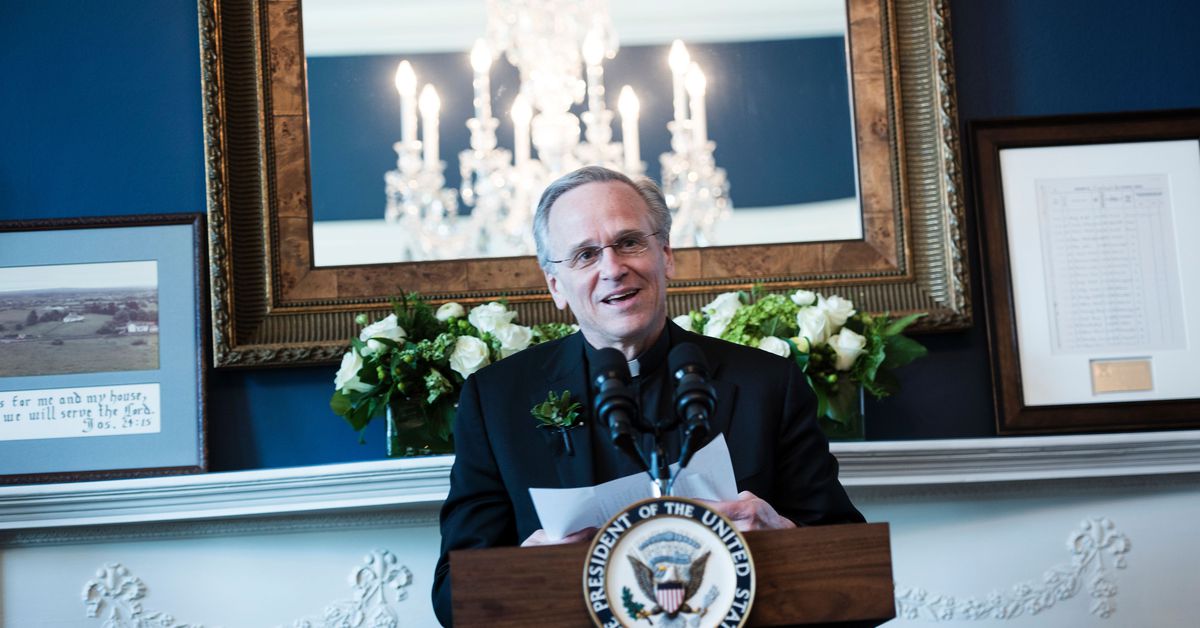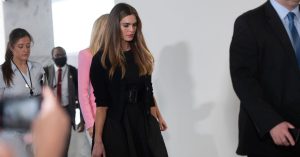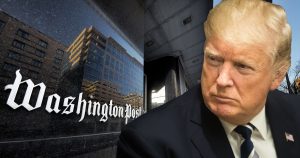Notre Dame President Rev. John Jenkins, who apologized earlier in the week for not wearing a mask and shaking hands with others during a crowded White House ceremony, tested positive for COVID-19.
The university relayed the news to students and faculty in a letter Friday, saying Jenkins is entering into “an extended period of isolation.”
On Monday, Jenkins said he regretted not taking widely recommended precautions to guard against the virus during the Rose Garden nomination of Notre Dame alum Amy Coney Barrett to the Supreme Court over the weekend.
“I regret my error of judgment in not wearing a mask during the ceremony and by shaking hands with a number of people in the Rose Garden,” Jenkins said in his letter Monday. “I failed to lead by example at a time when I’ve asked everyone else in the Notre Dame community to do so. I especially regret my mistake in light of the sacrifices made on a daily basis by many, particularly our students, in adjusting their lives to observe our health protocols.”
Jenkins was not the only person in the Rose Garden on Saturday who ignored health officials’ safety recommendations, including practicing social distancing, during the pandemic. Widely circulated video show U.S. Sen. Mike Lee of Utah without a mask embracing others at the event. Lee said on Friday that he tested positive for the coronavirus, according to his Twitter account. The night before, President Donald Trump announced that he and Melania Trump both tested positive for the virus. The Trumps and presidential adviser Hope Hicks, who also tested positive for the virus, all attended the nomination ceremony.
Jenkins said he was tested for the virus on Saturday prior to the Rose Garden event and the result was negative. He and others who tested negative “were told that it was safe to remove our masks,” Jenkins said in his letter.
‘Superspreader’ could have caused outbreak
One infectious disease expert said the Rose Garden event may have been started by a so-called superspreader, a highly contagious person responsible for many infections. Despite the rapid tests taken before the event, those results could change within days or even hours, said Dr. Robert Murphy, executive director of the Institute for Global Health at Northwestern University.
“Whoever got this thing going is a superspreader,” Murphy said.
The infections could have been avoided if masks were worn and social distancing was practiced, he said.
“The virus does not have a brain,” Murphy said. “The virus just attacks. If you don’t avoid the virus, you’re going to get it.”
Jenkins symptoms ‘mild’
In a university statement Friday, Jenkins is quoted as saying he “learned that a colleague with whom he has been in regular contact tested positive for COVID-19” and that he personally has “mild” symptoms. “The positive test is a good reminder for me and perhaps for all of how vigilant we need to be,” he added.
A university spokeswoman said Friday that neither Jenkins or anyone else at the school would comment beyond the statement.
In May, Jenkins wrote an opinion piece for the New York Times defending his decision to bring students back to campus for the fall semester despite the pandemic and scientists’ warnings about spread of the virus.
“For questions about moral value — how we ought to decide and act — science can inform our deliberations but it cannot provide the answer,” Jenkins wrote.
Shortly after the semester began, an outbreak of cases forced the university to temporarily suspend in-class teaching and moved to online learning.
Brett Chase’s reporting on the environment and public health is made possible by a grant from The Chicago Community Trust.



















